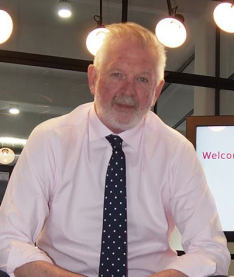TV or digital? Why there’s an ‘and’ missing
 In this opinion piece Rod Curtis says television is still king in Australia, it just needs a little digital booster.
In this opinion piece Rod Curtis says television is still king in Australia, it just needs a little digital booster.
Anyone with even a fledgling interest in AFL would be familiar with the ‘demise of the key forward’ narrative: The game is changing fast and the key forwards role is being usurped by the nimble and flexible next-gens’.
And anyone with a passing interest in advertising would have heard the same thinking applied to television: ‘Yesterday’s big impact media is being out-manoeuvred by the digital juggernaut.
Bad calls, I say.


I don’t think there’s much doubt that people still watch TV. The question is whether the TV networks have a business model that works in an environment where people can choose to watch whatever they want, whenever they want, while simultaneously doing something else, and deliver the audiences that advertisers want.
The trouble with full forwards is they think they’re the most important player on the field and they’re almost always overpaid, fail to reach expectations and deliver poor ROI.
Digital vs FTA-TV
People 30
Today’s Mumbrella has been bought to you by the letters T and V.
Even amongst those watching tv how many are pausing then fast forwarding the ads or looking at their phones, ipads during ad breaks? Remember when people used to make fun of ads or quote catch phrases from them? They don’t anymore. I bought a jeep is probably the only one in the last five years and that was because it was annoying.
Did I just read this?
Your first reference to back up your article cites thinktv.com.au, which is “the industry representative for all of Australia’s free-to-air metropolitan and regional commercial television broadcasters.” Way to go for unbiased data! You should work for a tobacco company.
Regarding the Crosby Textor “TV Habits, Consumption and Methods Report”, so how did they compile this? What was the sample size?
You actually are a dinosaur in terms of your thinking. This head in the sand attitude is what has effectively killed the press. You haven’t made a convincing argument based on unbiased data that TV is king.
Congratulations on your TV led Big Freeze campaign, raising 2.6 million dollars for research is wonderful. However it is evidence regarding the power of TV. I can easily counter about the ALS ice bucket challenge, digitally led, which raised over 40 million dollars. But that is also poor logic. Though it does help for context.
There are plenty of big brands that gained mass awareness through digital instead of TV. And yes it is measurable. And it is actual people. And they are front of the actual screen.
You keep playing with the focus on the key forward, my team will focus on winning.
Awful article.
Calm down Accountant. Rod is not damning digital – he’s just stating the obvious. In Australia, where traditional mass media still holds sway [no matter how fast its reach is ]diminishing] a combination of both TV and digital is a sound strategy. [Have you noticed how most water cooler talk is about The Bachelor or The Voice?]. As for Crosby Textor.
I haven’t seen their report – but as the masterminds behind the Conservative Party’s unprecedented win in the UK and the UNP’s victory in the just held Sri Lankan election, I’d say they probably know as much about TV consumption as most of us – even you.
Wow, The Accountant reminds me of Alec Baldwin’s character in Glen Gary Glen Ross.
TV will be around for a long time, and will be a prime player, if it gets its game together. No I am not about to use AFL terms, I know nothing about football.
TV needs to recognise that the days of wine and roses are over, the days of change are here and the need for good basic television practices must return. Entertain, inform, Host, and get to know and strive to interact with your audience.
They are not all football experts, soap opera watchers, brilliant accountants, or arty intellectuals. They are people (real human beings) from a wide base, many of whom find MKR, Room 101, and A Place To Call Home, less than appealing television.
>>”The question is whether the TV networks have a business model that works in an environment where people can choose to watch whatever they want, whenever they want, while simultaneously doing something else, and deliver the audiences that advertisers want.<<
The Philips LP2000 and Sony U-Matic video cassette recorders were released in 1970….